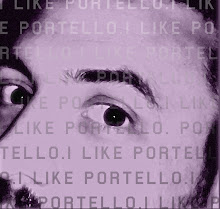One of the most common attacks on evolution, particularly by proponents of Intelligent Design, goes something like this:
“Evolution is just a theory. Intelligent design is another theory. Why can’t they both be taught in science classes?”
It sounds reasonable, but there’s a tricky sleight-of-hand in this argument.
When something like evolution is described as a scientific theory, it means something different from the usual everyday meaning of the word “theory”.
In scientific terms, a theory is the highest level of understanding.
For example, it’s a theory that the Earth revolves around the sun. It’s a theory that substances are made up of atoms.
 It goes like this: we start with an idea. In the case of evolution it was: “animals evolve over time”.
It goes like this: we start with an idea. In the case of evolution it was: “animals evolve over time”.
In the beginning, that was just an idea. The next step was to form a testable hypothesis.
Using gaps in the known fossil record we could predict what must lie in between. If the idea was right, we’d find animal fossils that matched the predictions.
 And we did. (Of course this is a greatly over-simplified description of both the hypothesis and the evidence. There’s a lot more to it than just that.)
And we did. (Of course this is a greatly over-simplified description of both the hypothesis and the evidence. There’s a lot more to it than just that.)
The hypothesis must also be falsifiable: it must be possible to find fossils that will prove the hypothesis wrong. This is possible, but it hasn’t been done.
So after 150 years the hypothesis has been well and truly confirmed by the weight of evidence. Then, and only then, is the hypothesis elevated to the high status of “scientific theory”.
Yes, evolution is a theory. And it carries all the evidence required to be called that.
The problem with Intelligent Design?
There is no evidence. There is no falsifiable hypothesis. There isn’t even a testable hypothesis.
In fact, when you get right down to it, Intelligent Design is nothing more than an idea.



2 comments:
Given your definition of the word theory, I wonder. Are there ever 2 scientific theories that contradict each other, or that in some way :fight"?
Yes, of course. It happens all the time.
But in the end there's only one winner, and the winner will be determined by which one has the best evidence.
Post a Comment